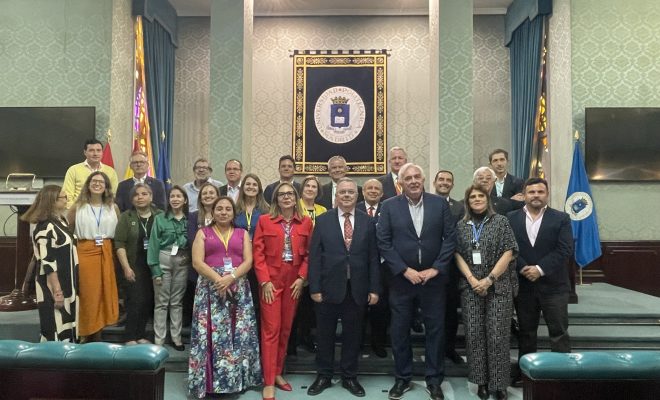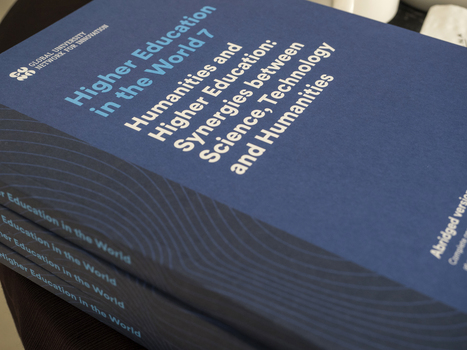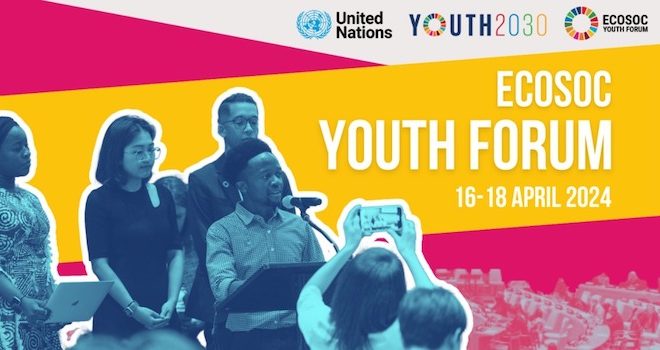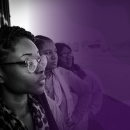Latin American rectors lead the way towards university sustainability in governance course
As part of UNESCO IESALC’s mission to support the sustainable transformation of universities, the second cohort of the Sustainable University Leadership and Governance Course was launched, aimed at rectors from Latin America. The face-to-face phase of the course, held from 2 to 4 October 2024 at Casa de América, Madrid, Spain, had the central objective of strengthening the capacities of university leaders to implement the Sustainable Development Goals (SDGs) in their institutional strategic plans, aligned with the 2030 Agenda.
This course responds to the need for universities to lead, as centres of knowledge and innovation, the path towards sustainable development and to train professionals capable of facing global environmental, economic and social challenges. The participation of rectors in this course was key to boosting institutional commitment to sustainability and the integration of the SDGs in higher education.
The practical approach allowed university leaders not only to learn about conceptual frameworks, but also to share experiences and establish cooperation networks, promoting the sustainable transformation of their institutions.
The different presentations, workshops and visits allowed participants to deepen their knowledge of the SDGs, exchange experiences and reflect on how to integrate these goals into the governance and leadership strategies of their universities.
At the end, the participants signed an institutional commitment to network in favour of university sustainability, creating strategic alliances that will promote sustainability in the region.
Governance and sustainable leadership: moving forward together towards the 2030 Agenda.
Panellists: Santiago Saura, Second Vice-President of the Spanish Network for Sustainable Development (REDS); Alejandro Rescia, Director of the Campus and Environment Unit, Complutense University of Madrid (UCM); and Débora Domingo, Vice-Rector for Sustainable Campus Development, Polytechnic University of Valencia (UPV).
Moderator: Javier Benayas del Álamo, specialist in sustainability and environmental education.
Governance and leadership are key to achieving the SDGs in the university context. A collaborative approach between universities, governments and civil society is needed to move towards sustainability, stressing that university leadership must be inclusive, interdisciplinary and long-term oriented. Sustainability must be integrated into all university spheres, from infrastructure to teaching and research.
This roundtable provided a valuable opportunity to reflect on how universities can be drivers of change towards sustainable development, not only locally but globally, in alignment with the 2030 Agenda.

Sustainability trajectory of universities SDGs in higher education: commitments, terminology and progress in processes
Panelists: Antonio Largo Cabrerizo, Rector, University of Valladolid; Julio Lumbreras, tenured Associate Professor at Universidad Politécnica de Madrid; and Atsufumi Yoko; Senior Vice President for Global Engagement Strategy, Okayama University, and holder of the UNESCO Chair in Research and Education for Sustainable Development (ESD).
During the roundtable on the second day, speakers shared their experiences and perspectives on the implementation of the SDGs in universities, as well as the commitments and progress made in the field of higher education.
They agreed that universities should take a proactive role in promoting sustainability, influencing both research and teaching, as well as being examples of sustainable practices in their operations.
Strategic partnerships and collaborations between institutions, businesses and governments are crucial to address complex challenges such as climate change. It was proposed to include sustainability training in curricula, preparing future professionals to be agents of change in their communities.
The need to train teachers in this approach was also mentioned, promoting a culture of sustainability within educational institutions, which is fundamental for the development and well-being of society as a whole.
Strategic collaborations to foster university sustainability
Panellists: Rosario Romera, Secretary of the Social Council of the Carlos III University of Madrid; Estíbaliz Sáez de Cámara Oleaga, Director of Sustainability at the University of the Basque Country.
The panel discussion concluded that strategic partnerships are essential to foster sustainability at university level. Universities must adopt a proactive and collaborative approach, working together to develop innovative solutions that integrate sustainability into all dimensions of higher education. The active involvement of the academic community, together with an interdisciplinary approach, are key to making a lasting impact in moving towards a more sustainable future.
The panellists mentioned their experience, as mentors in the Sustainable University Leadership and Governance in 2023 course, which allowed them to guide university rectors and governance teams in implementing sustainable policies in their institutions and facilitated the exchange of ideas and strategies between different universities, enriching the learning of the participants.
They shared their participation in the reformulation of the new strategic plan of the University Carlos III of Madrid, as well as experiences at the University of the Basque Country where joint initiatives have been developed with other academic institutions and organisations, integrating sustainability in education and research, providing a platform for sharing good practices and resources.
Moderator: Yuma Inzolia, Director of Capacity Development at UNESCO IESALC and raised the need to establish clear metrics to assess the impact of collaborations on sustainability. Panellists agreed that measurement and evaluation are crucial to demonstrate the effectiveness of initiatives and adjust strategies as needed.

UNESCO’s contribution to universities and sustainability
Panelists: Javier Uceda former Rector of the Polytechnic University of Madrid and Director of the Chair in University Management and Policy; Javier Ordoñez García, Director of the UNESCO Chair in Sustainable Development and Environment, University of Granada; Lela Melon Director of the Master in European and Global Law at the Universitat Pompeu Fabra; and Francesc Pedró, Director of the UNESCO International Institute for Higher Education in Latin America and the Caribbean.
The speakers discussed UNESCO’s key role in promoting sustainability in universities, as well as the opportunities and challenges facing higher education institutions on their path towards a sustainable future.
The panel discussion made it clear that UNESCO plays a crucial role in promoting sustainability in universities, offering support, resources and a framework for action. Through collaboration and sharing of good practices, higher education institutions can significantly advance their commitment to sustainability and contribute to building more just and resilient societies. Participants emphasised the need for a coordinated and multi-stakeholder approach to address current challenges, underlining that higher education has the potential to be a driver of change towards a sustainable future.
As part of the face-to-face activities, participants visited two leading universities in the implementation of sustainable strategies: Universidad Rey Juan Carlos (URJC), where they learned about its ambitious Strategic Plan URJC 2030, focused on sustainability and the fulfilment of the Sustainable Development Goals (SDGs) at university level, and Universidad Carlos III de Madrid, which has incorporated the SDGs as a sustainability strategy in the university campus.
From 14 October, the institutional teams of the participating universities will begin their training within the IESALC campus platform where, with the help of experts and mentors, they will consolidate their work aimed at reformulating their Strategic Plan with a roadmap with a medium-term scope that they must implement in the next 6 months.
At the end of the course, the rectors and their teams are expected to implement these learnings in their universities, promoting sustainability and the fulfilment of the 2030 Agenda.
This course represents a milestone in the consolidation of university leadership committed to sustainable development, with a clear focus on the transformation of higher education in Latin America.
This year’s course includes leaders from the following universities:

RELATED ITEMS














